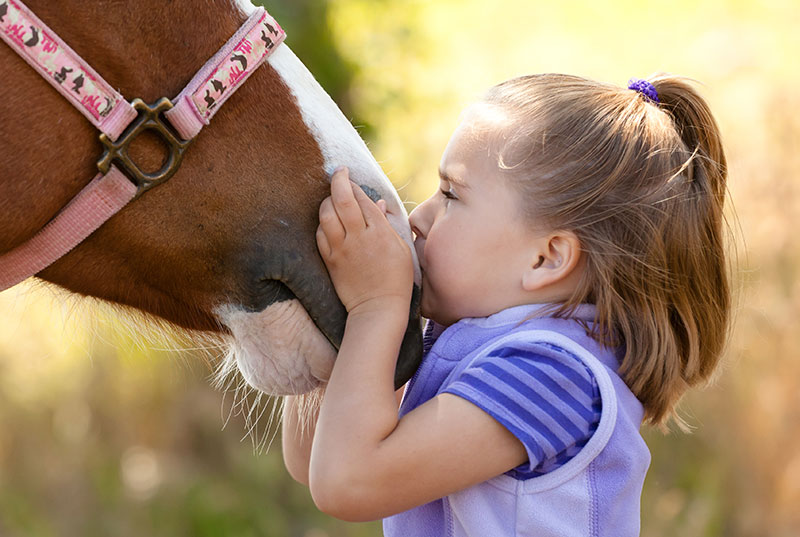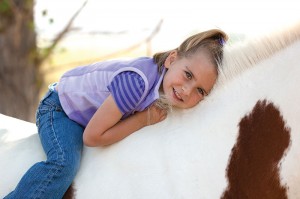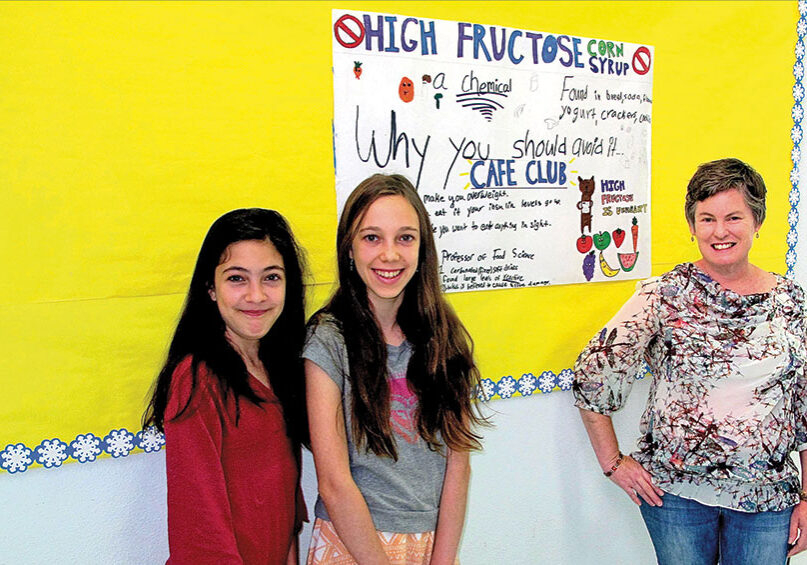 For thousands of years, people have enjoyed a special bond with horses. We admire them for their beauty, strength and intelligence. They are valuable to us both as work animals and companion animals. But now, a therapeutic approach called Equine Assisted Psychotherapy (EAP) is adding yet another dimension to the age-old interaction between mankind and horses.
For thousands of years, people have enjoyed a special bond with horses. We admire them for their beauty, strength and intelligence. They are valuable to us both as work animals and companion animals. But now, a therapeutic approach called Equine Assisted Psychotherapy (EAP) is adding yet another dimension to the age-old interaction between mankind and horses.
“Using animals is a way to help clients connect,” says Kimberley Covington, Licensed Marriage and Family Therapist (MFT) in Chico. In her psychotherapy practice, Covington offers traditional therapy, animal-assisted therapy with dogs, and Equine Assisted Psychotherapy. She explains that while office therapy works well for some clients, others benefit from the hands-on approach of EAP.
According to the Equine Assisted Growth and Learning Association (EAGALA), “Horses provide vast opportunities for metaphorical learning.” EAGALA certifies psychotherapists like Covington in EAP. Here’s how EAP works: sessions take place on the ground in an arena or pasture. The psychotherapist chooses an activity for the client, one that requires him to solve a problem. Working together with an Equine Specialist, the therapist facilitates the activity, then discusses with the client what worked and what didn’t.

Photo: Living Shasta Photography http://www.livingshastaphotography.com
Helping clients draw parallels between the EAP session and the “real world” is what this type of therapy is all about. For example, the client might be asked to walk the horse around a series of obstacles without touching them. If he finds that he is most successful when avoiding the obstacles altogether, the client might then recognize that avoiding certain problematic situations in life can lead to positive outcomes, too. “In the end,” Covington says, “the client can see solutions.”
This is why Equine Assisted Psychotherapy is considered solution-oriented therapy. “Clients end up connecting the dots themselves,” Covington says. She explains that this type of learning reinforces creative thinking and problem solving. EAGALA states, “The belief that our clients have the best solutions for themselves forms a foundation for the EAGALA approach.”
Certain natural characteristics enable horses to be particularly helpful in the therapy setting. First of all, they are honest. “Horses don’t lie, they don’t cheat, and they don’t have ulterior motives,” says Bryan Wickham, the Equine Specialist who assists Covington during therapy sessions. This straightforwardness provides useful feedback to clients about their own attitudes and behaviors.
Because horses are prey animals, they are keenly sensitive and can pick up on a client’s emotional subtext. “Humans emit pheromones,” Wickham says, “whether they are happy, sad or angry.” He explains that horses can “smell” these pheromones and will react to them. In other words, a client may appear outwardly calm, but if he is feeling insecure or angry inside, the horse will sense that and will let him know.
[sws_pullquote_left] “Horses don’t lie, they don’t cheat, and they don’t have ulterior motives.” – Bryan Wickham [/sws_pullquote_left] Additionally, in many ways, horses are like people. “All horses have personalities, and they have moods,” says Covington. They can be stubborn, curious or playful. An approach that works with one horse might not work with another. Wickham explains that horses are “matched” to clients for the purposes of the therapy session. A mellow horse may be chosen for one client, a high-strung horse for another, depending on the goals for that client.
Equine Assisted Psychotherapy can be appropriate for clients of almost any age, as well as for couples and groups. Covington particularly enjoys working with families in this setting. “In the office,” she says, “people can hide a little more and be on their best behavior.” In contrast, EAP group activities require cooperation, which can bring out frustration and bickering. “Everyone gets into their normal roles – it’s really interesting,” Covington says. Families complete a task together, then discuss how they responded to the situation. Through this process, they can discover what they all do at home to contribute to conflict.
Another activity, which Covington calls “life’s little obstacles,” works well with an individual client. The task involves leading the horse over an obstacle. During one particular session, Covington recalls working with a mother on her relationship with her son. When the client stood too close to the horse’s face, the animal didn’t want to move. But when she changed her body position, the horse would go over the obstacle. The mother realized that if she gave her son personal space, he would be more willing to complete tasks at home.
EAP is often called “experiential psychotherapy.” It was the mother’s experience with the horse, and her ultimate success, that helped her see how her own body language and nonverbal communication can influence others. The horse, with its sensitive and truthful nature, is the ideal messenger to deliver this information. By using the Equine Assisted Psychotherapy session as a metaphor for “real life,” clients can find their own solutions, ultimately enabling them to more effectively meet life’s challenges.
[sws_grey_box box_size=”595″]
For more information on Equine Assisted Therapy:
Kimberley Covington, MFT
Chico (530) 899-1412
kimcmft@msn.com
Equi-Journey/Denise Smith, LCSW
Corning (530) 354-5474
equi-journey@inreach.com
Stable Hands Therapeutic Riding Program of Siskiyou County
Yreka (530) 842-3082
http://www.stablehands.org [/sws_grey_box]
Posted in: Animals, Health & Nutrition
Comment Policy: All viewpoints are welcome, but comments should remain relevant. Personal attacks, profanity, and aggressive behavior are not allowed. No spam, advertising, or promoting of products/services. Please, only use your real name and limit the amount of links submitted in your comment.
Comments
Leave a Reply
You Might Also Like...

Budget-Friendly Grocery Tips
With the cost of food rising, watching the family food budget and stopping those budget-busting money leaks, while providing nutritious meals your family will enjoy has become essential for many […]

Sisson School’s Kitchen: Investing In Mt. Shasta Kids’ Health
The site council for Sisson School in Mt. Shasta, CA, sends annual surveys to families to help maintain an excellent educational environment. Amid much positive feedback, responses have also included […]

Your Kids’ Cereal – Part of a Nutritious Breakfast? Nah.
I am old enough to remember when Honey Smacks cereal was called Sugar Smacks. So it’s no surprise to me that a serving of the cereal has more sugar than a […]

Breastfeeding is the Foundation of Life
World Breastfeeding Week 2018 The World Alliance for Breastfeeding Action celebrates breastfeeding during the first week of August. “In a world filled with inequality, crises, and poverty, breastfeeding is the […]




Jennifer Bajackson says
Hello,
I enjoyed your article. I will be posting a link to it on my blog this week. Thank you.
Horse Calming Supplements says
What a fascinating read on the therapeutic benefits of Equine Assisted Psychotherapy! Your exploration of how horses contribute to the healing process is both insightful and heartwarming. As I delved into the profound connection between humans and horses in therapy, it occurred to me that incorporating horse calming supplements into this process could potentially enhance the experience. Imagine the positive impact when these magnificent animals, already known for their intuitive and calming presence, are complemented by supplements tailored to promote relaxation and well-being. It could be a wonderful avenue to explore, creating an even more conducive environment for individuals seeking solace and healing in the company of these remarkable creatures.